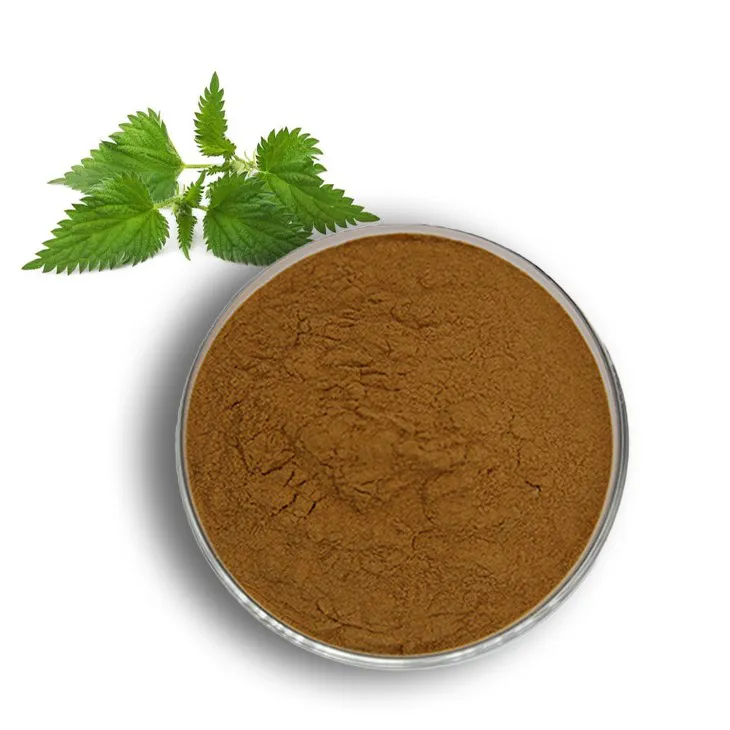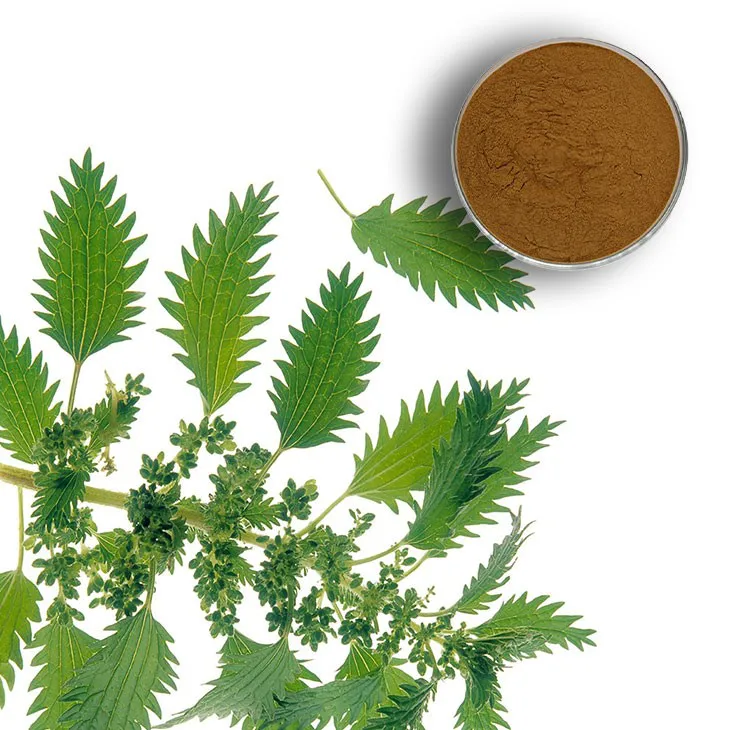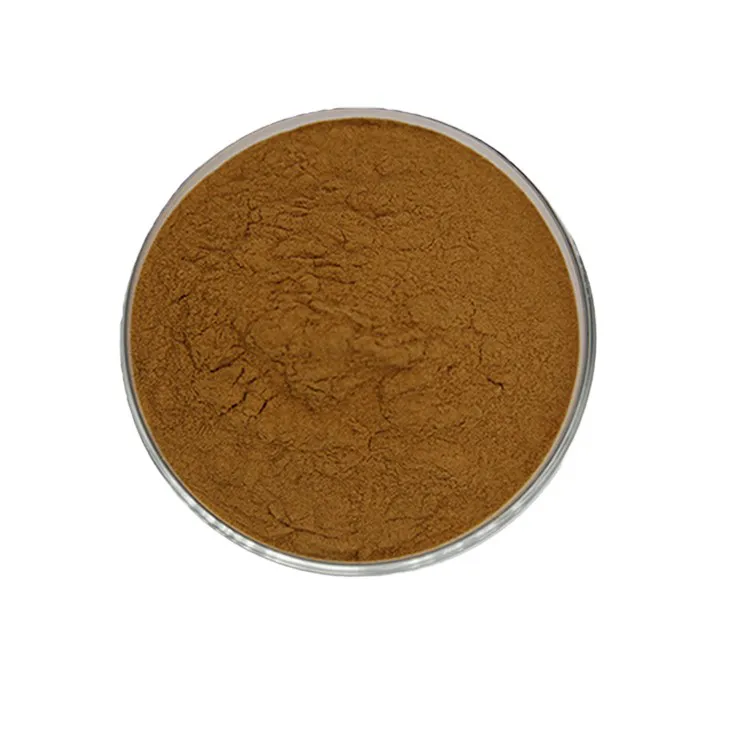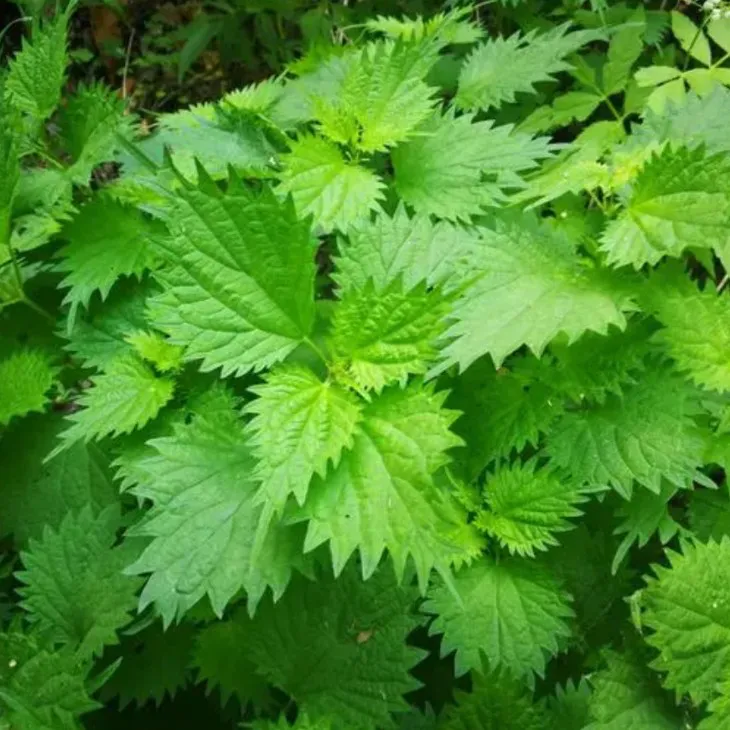- 0086-571-85302990
- sales@greenskybio.com
Nettle root extract with the best reviews.
2024-11-29

Introduction
Nettle Root Extract has emerged as a remarkable natural product in recent years, gathering a significant amount of attention and acclaim. It is sourced from the nettle plant, which has a long history of use in traditional medicine across various cultures. This extract is rich in nutrients and bioactive compounds, making it a subject of great interest in both the health and agricultural sectors.

Composition of Nettle Root Extract
1. Nutrients
- Nettle Root Extract contains vitamins such as vitamin C, which is essential for collagen synthesis and has antioxidant properties. Vitamin C helps in protecting the body's cells from damage caused by free radicals.
- It also has minerals like iron, potassium, and calcium. Iron is crucial for oxygen transport in the blood, potassium is involved in maintaining proper heart function and fluid balance, and calcium is necessary for strong bones and teeth.
- One of the prominent bioactive compounds in nettle root extract is lignans. Lignans have been studied for their potential anti - cancer properties. They may help in modulating the body's hormonal balance, which can be beneficial in preventing certain hormone - related cancers.
- Another important compound is polysaccharides. These complex carbohydrates are known for their immunomodulatory effects. They can enhance the immune system by stimulating the activity of immune cells such as macrophages and lymphocytes.

Health Benefits
1. Urinary Tract Health
Nettle root extract has shown promise in reducing urinary tract problems. The extract may have diuretic properties, which can increase urine production and help flush out toxins and bacteria from the urinary system. This can be particularly beneficial for those prone to urinary tract infections.
- It may also help in reducing inflammation in the urinary tract. Inflammation can be a contributing factor to various urinary problems, and the anti - inflammatory properties of nettle root extract can alleviate this.
- Studies have suggested that the extract can help in relaxing the smooth muscles in the urinary tract, which can improve urine flow and reduce discomfort associated with urinary problems.
2. Immune Function Improvement
As mentioned earlier, the polysaccharides in nettle root extract play a crucial role in improved immune function.
- The extract can enhance the body's natural defense mechanisms against pathogens. It can increase the production of antibodies, which are proteins that help in recognizing and neutralizing foreign invaders such as viruses and bacteria.
- Moreover, it can boost the activity of white blood cells, which are the front - line soldiers of the immune system. By enhancing the function of these cells, the body is better equipped to fight off infections and diseases.
3. Other Potential Health Benefits
- Nettle root extract may have anti - inflammatory effects throughout the body. Chronic inflammation is associated with many diseases, including heart disease, diabetes, and arthritis. By reducing inflammation, the extract could potentially play a role in preventing or managing these conditions.
- There is also some evidence to suggest that it may have a positive impact on prostate health in men. It may help in reducing the size of an enlarged prostate, which can improve urinary function and overall quality of life.
- Some studies have indicated that nettle root extract could be beneficial for skin health. It may help in treating skin conditions such as eczema and psoriasis due to its anti - inflammatory and antioxidant properties.

Agricultural Applications
1. Natural Pesticide
In the agricultural sector, nettle root extract has the potential to be used as a natural pesticide.
- The bioactive compounds in the extract can act as repellents against certain pests. For example, it may deter insects from feeding on crops, reducing the need for chemical pesticides.
- It can also have anti - fungal properties, which can be useful in preventing fungal diseases in plants. This can help in protecting crops and improving yields.
2. Soil Amendment
Nettle root extract can also be used as a soil amendment.
- When added to the soil, it can improve soil fertility. The nutrients present in the extract, such as potassium and calcium, can be made available to plants, promoting their growth.
- It may also enhance the soil's microbial activity. The polysaccharides in the extract can serve as a food source for beneficial soil microorganisms, which in turn can help in nutrient cycling and soil structure improvement.

Extraction Methods
1. Solvent Extraction
- One of the common methods of extracting nettle root extract is solvent extraction. In this method, solvents such as ethanol or methanol are used. The nettle root is first dried and ground into a fine powder. Then, the powder is soaked in the solvent for a certain period.
- The solvent helps in dissolving the bioactive compounds from the nettle root. After soaking, the mixture is filtered to separate the liquid extract from the solid residue. The solvent is then evaporated, leaving behind the concentrated nettle root extract.
- Supercritical fluid extraction is a more advanced method. Carbon dioxide in its supercritical state is often used as the extraction medium. In this state, carbon dioxide has properties of both a liquid and a gas, which makes it an excellent solvent for extracting bioactive compounds.
- The nettle root is placed in a high - pressure chamber with supercritical carbon dioxide. The bioactive compounds are selectively extracted by the carbon dioxide. This method has the advantage of being more environmentally friendly compared to solvent extraction as it does not leave behind any solvent residues.
Safety Profile
1. General Safety
- Nettle root extract is generally considered safe when used in appropriate amounts. However, some people may experience mild side effects such as skin irritation if they come into direct contact with the nettle plant during extraction or handling.
- It is important to note that pregnant or breastfeeding women should consult a healthcare provider before using nettle root extract, as there is limited research on its safety in these populations.
- Some individuals may be allergic to nettle root extract. Allergic reactions can range from mild itching and rash to more severe symptoms such as difficulty breathing in rare cases.
- Before using nettle root extract, it is advisable to do a patch test, especially for those with a history of allergies or sensitive skin.
Conclusion
Nettle root extract has rightfully earned its excellent reviews due to its diverse range of benefits. In the health realm, it offers potential solutions for urinary tract problems, immune function enhancement, and more. In agriculture, it can be a valuable asset as a natural pesticide and soil amendment. While it has a relatively good safety profile, caution should still be exercised, especially in certain populations. As research continues, we can expect to uncover even more about this remarkable natural extract and its potential applications.
FAQ:
What are the main nutrients in nettle root extract?
Nettle root extract is rich in various nutrients. It contains vitamins such as vitamin C, minerals like iron, and also amino acids. These components contribute to its potential health - promoting properties.
How does nettle root extract assist in reducing urinary tract problems?
It is believed that certain bioactive compounds in nettle root extract may have anti - inflammatory and diuretic effects. These effects can help in relieving inflammation in the urinary tract and promoting the normal flow of urine, thus potentially reducing urinary tract problems.
What is the safety profile of nettle root extract?
Generally, when used appropriately, nettle root extract is considered safe for most people. However, some individuals may experience mild side effects such as skin irritation. Pregnant and breastfeeding women should consult a doctor before using it as its effects on pregnancy and lactation are not fully understood.
How can nettle root extract be used as a natural pesticide?
Some of the compounds in nettle root extract have properties that can repel or inhibit the growth of certain pests. It can be made into a spray or added to the soil in a diluted form to protect plants from pests without the use of synthetic chemicals.
What are the common extraction methods for nettle root extract?
One common method is solvent extraction, where solvents like ethanol are used to extract the active compounds from the nettle roots. Another method is maceration, which involves soaking the roots in a solvent for a period of time to draw out the desired substances.
Related literature
- The Bioactive Compounds and Health Benefits of Nettle Root Extract"
- "Nettle Root Extract in Agriculture: A Natural Alternative for Pest Control"
- "Safety and Efficacy of Nettle Root Extract in Human Health"
- ▶ Hesperidin
- ▶ citrus bioflavonoids
- ▶ plant extract
- ▶ lycopene
- ▶ Diosmin
- ▶ Grape seed extract
- ▶ Sea buckthorn Juice Powder
- ▶ Beetroot powder
- ▶ Hops Extract
- ▶ Artichoke Extract
- ▶ Reishi mushroom extract
- ▶ Astaxanthin
- ▶ Green Tea Extract
- ▶ Curcumin Extract
- ▶ Horse Chestnut Extract
- ▶ Other Problems
- ▶ Boswellia Serrata Extract
- ▶ Resveratrol Extract
- ▶ Marigold Extract
- ▶ Grape Leaf Extract
- ▶ blog3
- ▶ blog4
-
Chinese Saffron Extract Powder Factory.
2024-11-29
-
Cactus Extract Supplier
2024-11-29
-
Optimal Bioavailability of Vitamin C.
2024-11-29
-
Extraction process of wheat germ extract.
2024-11-29
-
100% Pure Natural L - Theanine Powder.
2024-11-29
-
Tongkat Ali Extract Powder
2024-11-29
-
Kidney Bean Extract
2024-11-29
-
Tamarind extract powder
2024-11-29
-
Resveratrol extract
2024-11-29
-
Cat Claw Extract
2024-11-29
-
Yohimbine Bark Extract
2024-11-29
-
Honeysuckle Pollen
2024-11-29
-
Stevia Extract
2024-11-29
-
Pomegranate Extract
2024-11-29
-
Jujube Extract
2024-11-29





















